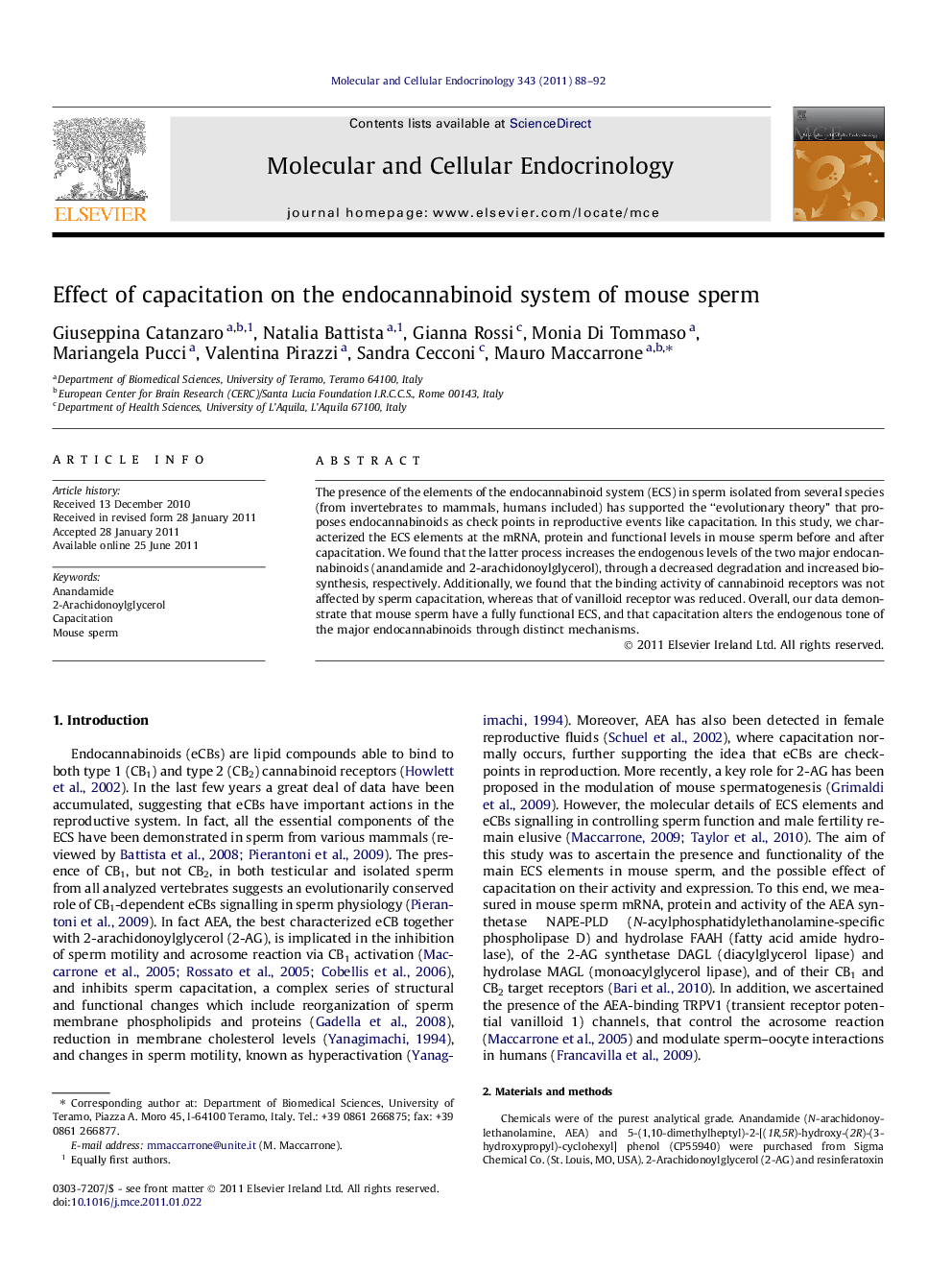| Article ID | Journal | Published Year | Pages | File Type |
|---|---|---|---|---|
| 8477787 | Molecular and Cellular Endocrinology | 2011 | 5 Pages |
Abstract
The presence of the elements of the endocannabinoid system (ECS) in sperm isolated from several species (from invertebrates to mammals, humans included) has supported the “evolutionary theory” that proposes endocannabinoids as check points in reproductive events like capacitation. In this study, we characterized the ECS elements at the mRNA, protein and functional levels in mouse sperm before and after capacitation. We found that the latter process increases the endogenous levels of the two major endocannabinoids (anandamide and 2-arachidonoylglycerol), through a decreased degradation and increased biosynthesis, respectively. Additionally, we found that the binding activity of cannabinoid receptors was not affected by sperm capacitation, whereas that of vanilloid receptor was reduced. Overall, our data demonstrate that mouse sperm have a fully functional ECS, and that capacitation alters the endogenous tone of the major endocannabinoids through distinct mechanisms.
Related Topics
Life Sciences
Biochemistry, Genetics and Molecular Biology
Cell Biology
Authors
Giuseppina Catanzaro, Natalia Battista, Gianna Rossi, Monia Di Tommaso, Mariangela Pucci, Valentina Pirazzi, Sandra Cecconi, Mauro Maccarrone,
